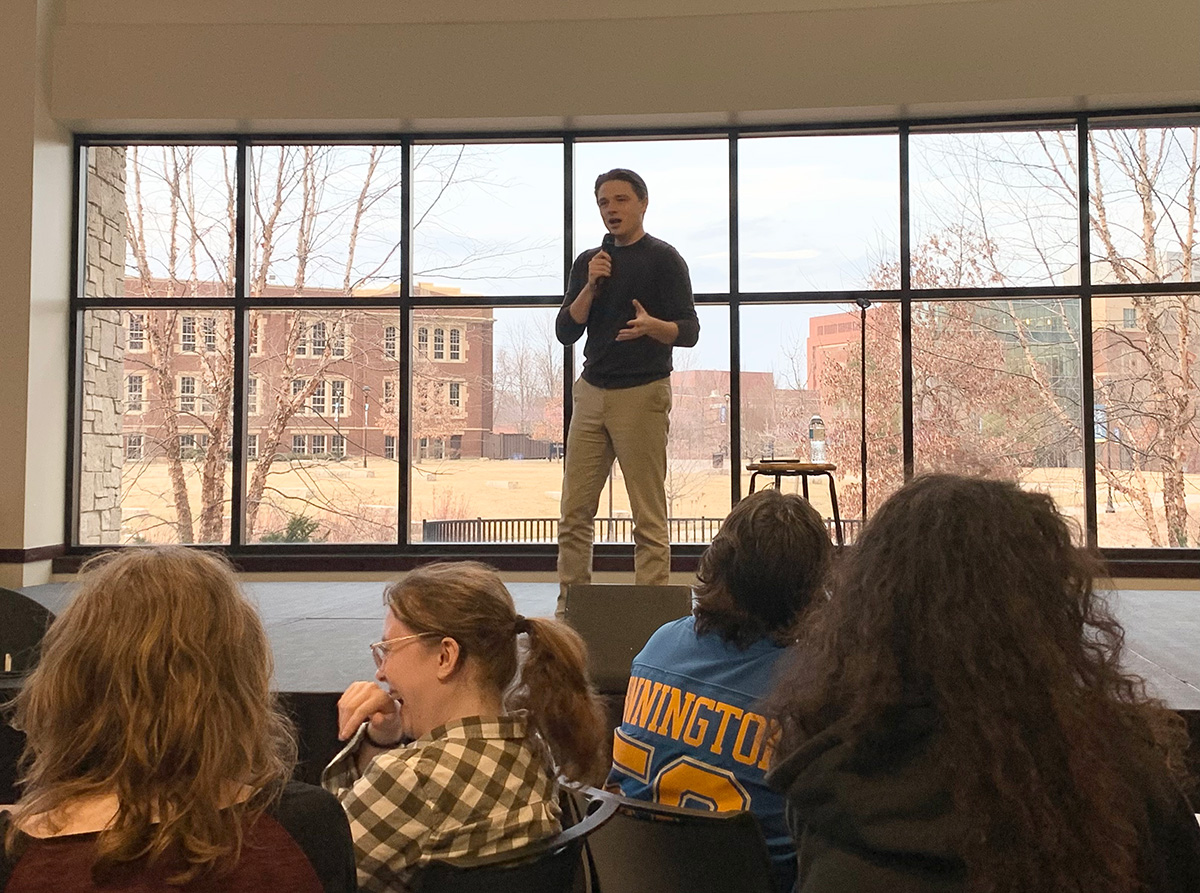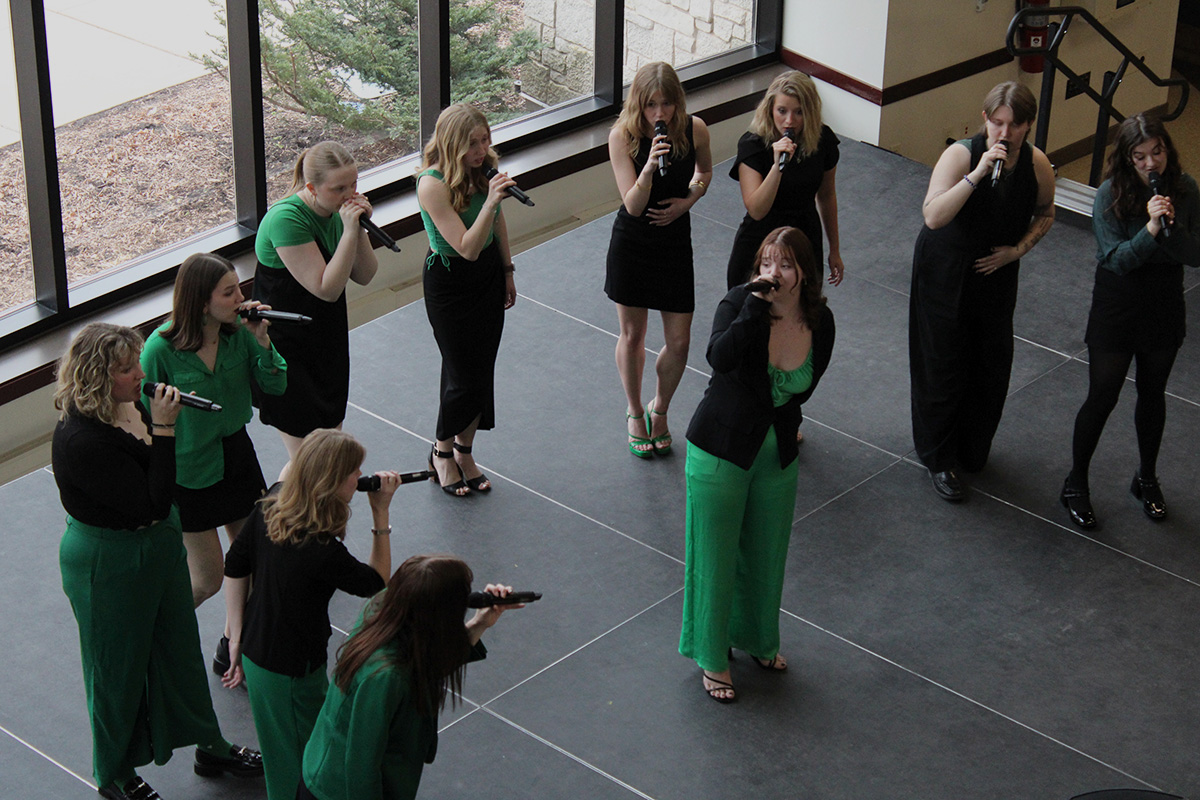On Tuesday night, Hibbard 101 hosted that night’s event as a part of the Human Trafficking Abolitionists’ attempts to raise awareness in coordination of Human Rights Week.
The lights were dimmed and come 7 p.m., the Frontline documentary “Syria Undercover” started playing on the screen. There was one problem though. Despite screening in Hibbard’s largest room, only five people were in attendance, including freshman Hannah Herzfeld, who was running the event.
Herzfeld joined the Human Trafficking Abolitionists after becoming aware of an issue she was previously ignorant to.
“I didn’t know anything about human trafficking before I got on campus,” Herzfeld said. “After I realized what was going on, even here in the United States, I just wanted to help. The more people who know, the better. That’s what this documentary series is all about.”
The documentary series, which the Human Trafficking Abolitionists put on in conjunction with the university, worked under the theme “Every Person Matters” and was free to the public.
The series began Monday with the documentary “Ai Weiwei: Never Sorry,” a story about a Chinese artist who strictly opposes his country’s censorship policies.
Tuesday’s film, “Syria Undercover” examined human rights conditions in Syria amidst the nation’s ongoing revolution.
After poor attendance at each of the first two films, the group’s objective of increasing awareness hasn’t been as successful Herzfeld hoped.
“Not too many people showed up which is disappointing,” Herzfeld said. “It’s a really heavy topic. It’s overwhelming and people don’t want to think about that kind of stuff. It’s hard to get people passionate about it.”
Sophomore Wyatt Opelt said he attended Tuesday’s film out of simple curiosity.
“I wasn’t really all that aware about what was going on in Syria,” Opelt said. “It was really interesting and I’m glad I came. It’s important to be informed.”
Sophomore Alyssa Krantz said she too was unaware of the events in Syria and was shocked by the film’s content.
“All the images and the atrocity that is going on there is terrible,” Krantz said. “You have to be aware of these things. If you live in a bubble, what good are you?”
The Human Trafficking Abolitionists aren’t relying just on the documentary series to increase awareness though. Herzfeld was personally involved in the baked goods giveaway that took place all week at the Davies Center.
“We set up a table in Davies and tried to make ourselves available,” Herzfeld said. “Some people have come up with questions, which is great.”
The documentary series resumed Wednesday night with the screening of “Kony 2012 Part II.” The film spotlights human rights violations in central Africa and was created by the controversial group Invisible Children. Attendance remained low with only five people in attendance.
Fifth year senior April D’Water introduced the Wednesday’s film and said she was disappointed in the low numbers the film series has been drawing.
“Last year we had a lot better attendance,” D’Water said. “We put up posters and had a banner on the university website, but no one looks at that. We would like more support from the professors, ultimately.”
She said low numbers don’t diminish the importance of the message though.
“It’s been a year since Kony went viral,” D’Water said. “It’s a good time to discuss it again. It’s important we open our minds to conflicts around the world that don’t affect us directly. By staying silent, we’re allowing these things to continue.”
The film series will conclude Thursday night with the screening of “The Human Experience,” the story of Jeffery Azize as he travels the globe in search of an answer to the question, “What does it mean to be human?”
The film will start at 6:30 p.m. in Hibbard 100 and is free to the public.







